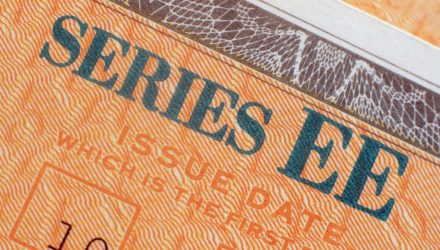The Treasury Department has been contemplating the release of an ultra-long bond, but it appears debt issues with a 50-year maturity date may be coming sooner than we think. The news comes as yields have been at record lows and talks of zero to negative interest rates are creeping into bond market vernacular.
The news comes after the Federal Reserve lowered interest rates for a third time. The central bank doesn’t foresee any future hikes until economic data warrants the move.
Per a CNBC report, the Treasury “is ‘exploring’ potential additions to the current suite of Treasury securities, including a 20-year nominal coupon bond, a 50-year nominal coupon bond and a one-year floating-rate note linked to the Secured Overnight Financing Rate, according to the Treasury’s quarterly refunding statement released Wednesday.”
“Treasury is taking a proactive approach to prepare for prospective future financing needs,” said the statement on Wedensday.
The department was already contemplating the idea last month per a report in Barron’s, “U.S. officials have revived a conversation about issuing ultra-long Treasury bonds, which would mature in 50 to 100 years, now that long-term borrowing costs have fallen to record lows. Treasury Secretary Steven Mnuchin recently told Bloomberg News that his staff is ‘actively revisiting’ the idea of issuing an ultra-long bond, ‘and it is something that is under very serious consideration.’”
The department seems keen that in order to be competitive with yields, it will require investors to take on more duration risk. In times like now where yields are low, income can be hard to come by, but rather than looking for debt issues with the highest yield at the expense of longer duration, market experts are warning investors to keep their duration exposure short.
“If you’re going to buy bonds and you need income, I would keep your duration, [your]maturities, short or very medium short,” said Todd Morgan, chairman and CEO of Bel Air Investment Advisors. “I think it’s too dangerous because rising interest rates — which, they could happen in the next couple years — could do a lot of damage to your portfolio if you start buying long-term bonds.”
ETF Bond Exposure Options
Investors looking to gain broad-based exposure to bonds can look at funds like the ProShares S&P 500 Bond ETF (NYSEArca: SPXB). The fund seeks investment results that track the performance of the S&P 500®/MarketAxess Investment Grade Corporate Bond Index, which consists exclusively of investment-grade bonds issued by companies in the S&P 500.
Investment-grade corporate bond-focused fixed-income ETF options include the iShares Intermediate Credit Bond ETF (NASDAQ: CIU), iShares iBoxx $ Investment Grade Corp Bd ETF (NYSEArca: LQD) and Vanguard Interm-Term Corp Bd ETF (NASDAQ: VCIT). Investors looking for broad-based core bond exposure can look to a fund like the iShares Core US Aggregate Bond ETF (NYSEArca: AGG).
For more market trends, visit ETF Trends.

